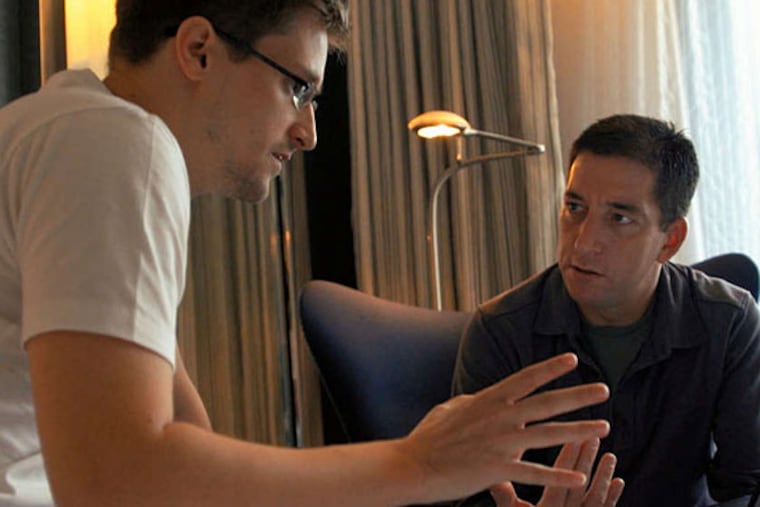Snowden in a hotel room after alarming the world
When documentary filmmaker Laura Poitras was approached by an anonymous whistle-blower calling himself Citizenfour, he warned her to upgrade her computer security substantially if she wanted to evade government surveillance.

When documentary filmmaker Laura Poitras was approached by an anonymous whistle-blower calling himself Citizenfour, he warned her to upgrade her computer security substantially if she wanted to evade government surveillance.
"Assume your adversary is capable of 3 billion guesses per second," he wrote her.
If anyone was familiar with U.S. officials' formidable capabilities for data mining, it was Edward Snowden, the cynosure of Poitras' alarming film, Citizenfour.
It's a rather claustrophobic documentary, made up largely of Snowden - whom Poitras had lobbied strenuously to film - holed up in a hotel room in Hong Kong for eight days. He is understandably camera-shy, having just engineered a series of document dumps of classified material that are causing chaos and consternation half a world away. The revelation of Citizenfour is how fully aware Snowden is of the moral and civic implications of what he is doing. And how resigned he is to the censure and persecution that will inevitably fall on him.
But even as he monitors the international fallout from his hotel room, he remains convinced that the public had to be informed of how egregiously its privacy was being violated by the National Security Agency and other government entities.
Scenes of Snowden's vigil alternate with news and original footage of just how vast the scope of covert snooping had become, thanks to the passive cooperation of telephone companies and Internet services.
You watch as a series of NSA officials repeatedly perjure themselves in congressional hearings, categorically denying that any type of surveillance is being conducted on U.S. citizens.
This is a complicated story, but it's efficiently laid out by Poitras in this smartly edited project. She has posed Citizenfour as the final piece of a post-9/11 trilogy that began with My Country, My Country (about the 2006 elections in Iran) and The Oath (about Guantanamo).
That's a rather specious grouping, because Citizenfour absolutely stands on its own as a privileged examination of a pivotal moment in U.S. history.
It's also a reminder of the accelerated pace at which we are living. The principal events in this film took place in 2013, but they already seem rather remote.
215-854-4875 @daveondemand_tv